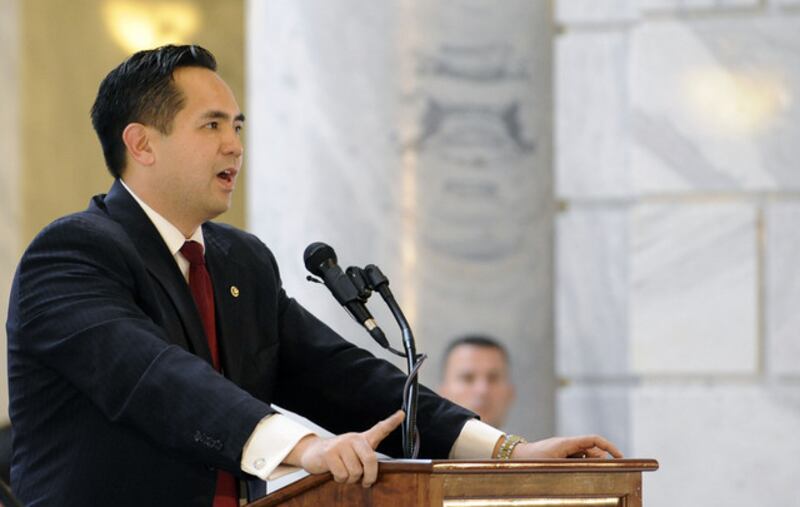Utah Attorney General Sean Reyes is among a coalition of GOP attorneys general that filed an emergency legal request earlier this week in attempts to delay the end of a COVID-era policy that has allowed border authorities to expel migrants on public health grounds.
The coalition's request to the U.S. Court of Appeals for the District of Columbia Circuit to suspend a lower court's ruling is the latest development in ongoing litigation concerning Title 42. Last month, a federal judge ordered the Biden administration to lift Title 42, which was originally enacted under the Trump administration.
Title 42 is a rarely used part of U.S. law that allows the government to expel migrants if doing so would prevent contagious disease. The U.S. Centers for Disease Control and Prevention invoked the law at the beginning of the pandemic, giving border patrol agents the power to expel virtually all non-citizen or residents arriving at U.S. borders, including those seeking asylum. Authorities have since expelled migrants at the U.S.-Mexico border nearly 2.5 million times.
"The argument that immigration-related issues affect only states along the physical border with Mexico is preposterous. Utah is feeling the effects of illegal immigration as are other states, which is why we joined the case," reads a statement from the attorney general's office. "Higher costs in the health care system, violent crime, human and sex trafficking, and drug activity spreads from the border to every state in the nation."
Without further legal action, Title 42 will end Dec. 21. However, the coalition has asked the court to respond to its request by Dec. 16. Should the court deny the request, the attorneys general have asked the court to issue a seven-day suspension of the order that would allow the states to take the issue to the Supreme Court.
Reyes is joined by attorneys general from Alabama, Alaska, Arizona, Kansas, Kentucky, Louisiana, Mississippi, Missouri, Montana, Nebraska, Ohio, Oklahoma, South Carolina, Tennessee, Texas, Virginia, West Virginia and Wyoming.
The attorneys general argue that ending Title 42 will would fuel an enormous disaster along the U.S.-Mexico border, according to CBS News. The Biden administration has defended Title 42 in federal court and released a plan this week to handle the end of Title 42. The plan includes hiring nearly 1,000 border patrol processing coordinators and adding 2,500 contractors and personnel from government agencies, reports CNN.
Critics of Title 42 argue the law has been used as a strategy to restrict immigration, rather than as the public health tool it was designed to be. They highlight how repeat border crossings and overall border encounters have increased under the policy and argue it has opened the door for human rights abuses of vulnerable migrants.

